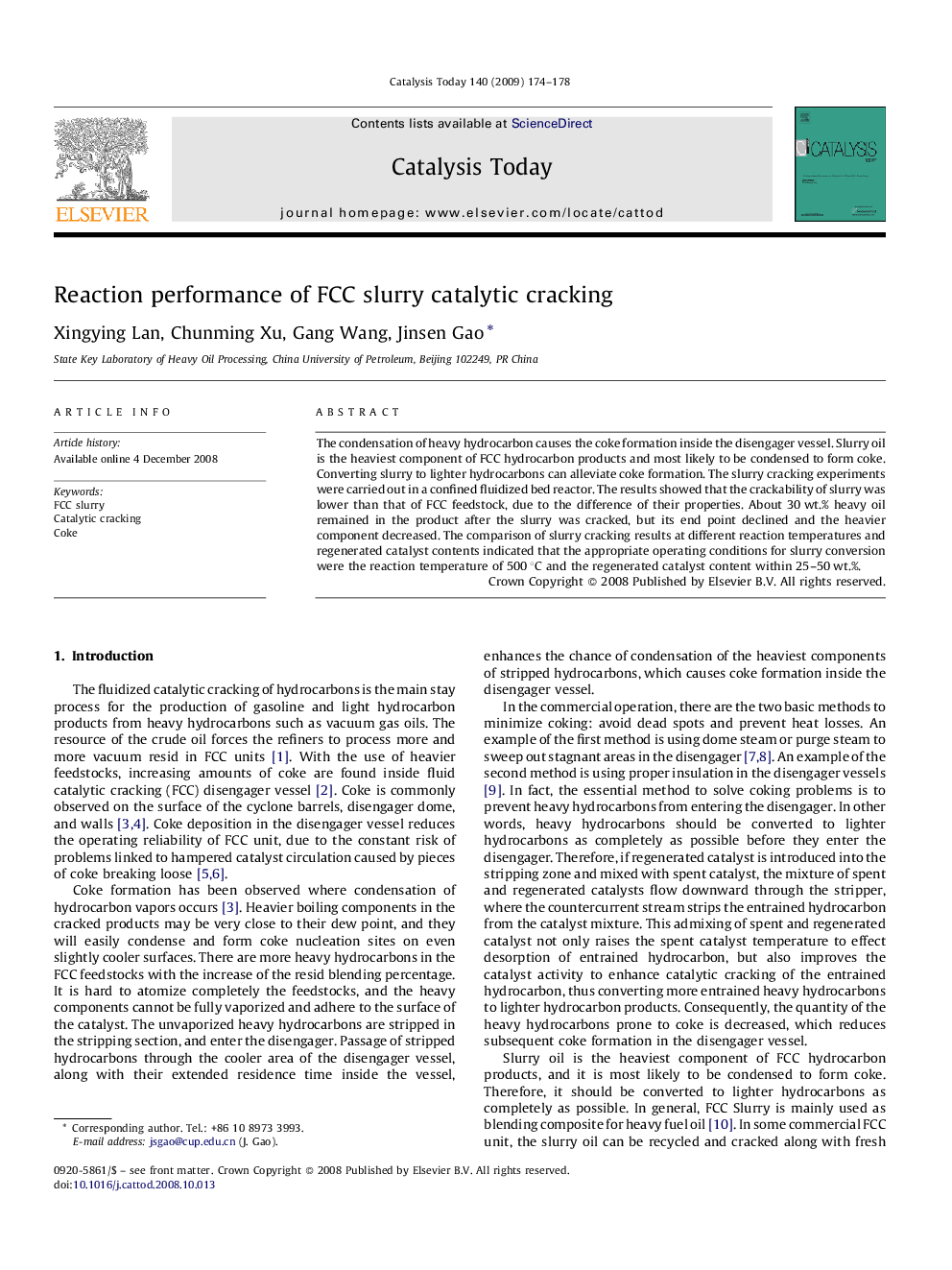| Article ID | Journal | Published Year | Pages | File Type |
|---|---|---|---|---|
| 57496 | Catalysis Today | 2009 | 5 Pages |
The condensation of heavy hydrocarbon causes the coke formation inside the disengager vessel. Slurry oil is the heaviest component of FCC hydrocarbon products and most likely to be condensed to form coke. Converting slurry to lighter hydrocarbons can alleviate coke formation. The slurry cracking experiments were carried out in a confined fluidized bed reactor. The results showed that the crackability of slurry was lower than that of FCC feedstock, due to the difference of their properties. About 30 wt.% heavy oil remained in the product after the slurry was cracked, but its end point declined and the heavier component decreased. The comparison of slurry cracking results at different reaction temperatures and regenerated catalyst contents indicated that the appropriate operating conditions for slurry conversion were the reaction temperature of 500 °C and the regenerated catalyst content within 25–50 wt.%.
